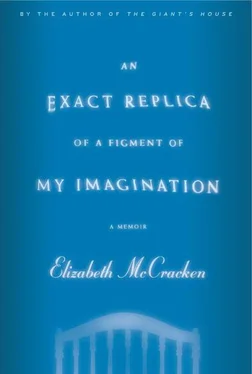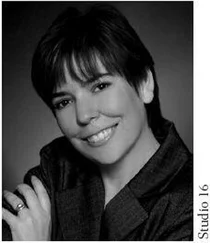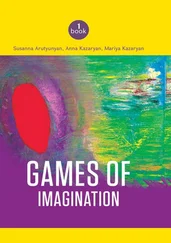It’s hard to explain the rage I felt at reading this, at her attempt to turn her silence into something noble, when all of my other friends had turned themselves inside out to help me months before. The entire note was full of platitudes. “Losing a child is the worst pain one can experience, I think,” she wrote, and I hated her for that I think, as though she wanted to make it seem as though my pain was her original thought, a theory she’d honed in social work school. Even now I realize how petty I’m being, how the only problem was that she’d waited too long to write the note. Her shock and sympathy were no longer fresh, and her language reflected that. But my grief was still fresh, grief lasts longer than sympathy, which is one of the tragedies of the grieving, and the distance between what I felt and what she wrote infuriated me.
She’s written to me since. I have never written back.
Oh, Elizabeth,” my friend Lib wrote, “these past ten months did happen, Pudding did happen, we won’t forget him. He’s part of our family, one of those cousins or great-aunts that not everyone has met but is still part of the whole damn sweet sad picture.”
My friend Lib is a baby freak. I hadn’t realized that before, though we’ve known each other for twenty years now, ever since we were little library workers together at the Newton Free Library in Newton, Massachusetts. All through my pregnancy with Pudding, she hovered over me through the phone wires, asking questions and giving sound advice on matters ranging from education to what sort of underpants one might need postpartum. Edward and I stay with Lib and Jonathan and their daughters, Sophie and Nora, when we’re in Boston: it’s a sweet house full of snacks and nice girls and good books, and we’d been looking forward to introducing Pudding to it.
Lib e-mailed me all the time, after Pudding died. We spoke for hours on the phone, too, but the phone conversations have gone wherever conversations go, up in a mist of white wine, and the French sun, and the smoke off a ferry headed to England, and the English seaside. She was not normally a writer of e-mails — her daughters were eleven and five, and the computer was on the third floor of their house — but she wrote to me then. She still writes to me about Pudding. She misses him like a person too, I think.
I want to explain to her daughters what their mother did for me. I think in some ways she saved my life.
But I can’t explain, I can only give examples.
She wrote, “We spent the evening with Adam, all crying softly into his birthday bourbon, it may not be strictly Kubler-Ross but hell we really don’t have a vocabulary for this kind of loss. I think I’ll take Nora’s lead on this one. When she learned that Pudding died she clamped her hands over her ears, stamped her feet and yelled no more people dying. Now, she carries him around and sleeps with him, his name is Owen Alexander Green and she says Elizabeth and Edward don’t have to worry because she is taking care of him. Nora’s world is a beautiful place.”
She wrote, “I woke up today thinking of you. It’s Mother’s Day, Elizabeth. Of course I’m thinking of how I desperately wish circumstances were different. But I’m also thinking about how connected we all are, all us mothers. The old ones, the new ones, the sad, the crazy, Natalie, Cornelia and we Elizabeths. I’m thinking I feel very close to you, to Pudding, to your grief and to mine. I looked forward to seeing his face, the combining of you two dear people. The image I hold of him now is of a chubby baby at the water in his mother’s arms, she’s trying to get him to touch the water but he pulls up his little fat legs, retracts them in an ‘I’d rather not’ sort of a way. Deborah, my midwife friend, says that of the women she’s known whose babies have died, of course all of them wish life had unfolded differently, but none wished that they hadn’t carried, loved, and birthed those children. Those are some amazing mothers. You are one amazing mother. I love you very much this day.”
She wrote, “It’s hard to be with grief. We all so want to help and there is really nothing to do. My crazy adored aunt Pauline’s catchphrase was ‘offer it up.’ Those words were a curse, a joke, a prayer and a balm to us cousins over the years. Whack your funny bone, lose your engagement ring, catch your boyfriend cheating, lower your mother’s body into the ground and offer it up. I catch myself these days offering it up, driving around saying out loud ‘Pudding, what the fuck?’ An infant in the ice cream shop almost brought me to my knees yesterday. I breathed her in and tenderly offered it up.”
She wrote, “At security in Copenhagen on the return trip an extended Middle Eastern family were bidding tearful good-byes to the ancient mother and father. The old lady from ethnic-old-lady central casting, bless her heart, kissed everyone soundly on the cheeks. The babes she held tight, kissed on the cheeks, and planted a big wet one right on their hearts. Well, that did it for me, started bawling quietly and discreetly on the chaotic airport spot. How’s your heart old friend. I’m thinking of you a lot and sending many heart kisses.”
It’s the last days in Savary where my memory starts to get oceanic: it shifts, it suddenly dips, it drops out of view and then comes over my head in a wave. I splutter, my mouth full of the stuff. We drank a lot of wine on the patio. We cried a lot. We watched every meaningless video in our collection. I checked my e-mail all the time. I needed to know who was worried about me. I’ve reread some of the e-mails I wrote back to friends recently, and I’m astounded by how chipper I sound; I even find them slightly creepy, and I wonder if my friends did, too. I remember one long phone conversation with my brother during which I walked around and around the L-shaped dining room table in the L-shaped dining room (diners at one end wouldn’t be able to see diners at the other end) touching the back of each chair; I hung up the phone loving my brother even more than I had before, but now I can’t recall a word that either of us said. My parents arrived a few days later — they’d scheduled the trip months before to meet Pudding — and I remember almost nothing of that visit other than one day we had a great deal to drink at lunch, and then we all took very long naps, and then Edward made Ovaltine and toast for dinner.
The day my parents left, we left Savary for good and began traveling.
But before this, we had one day — this is very strange, it’s the last day I remember really clearly — when somehow everything was slightly better. Not all right at all, but one day we made jokes and actually laughed at them. A day of grace. We knew that something very, very terrible had happened, but it seemed to have happened to someone else, perhaps to someone very dear to people dear to us, a friend of a friend we’d always heard stories about. There was sadness in the house, but it didn’t have us by the throat. Even as it happened, I wondered what it meant. Was it possible that already we were returning to ourselves?
Things got much worse after that.
The journey from Duras to Holt — from the farmhouse by a vineyard in France to a four-bedroom cottage not too far from the North Sea — was Odyssean. That felt right. It felt good to do hard physical travel away from. . away from everything. First we drove north to a small village near Angoulême, where we spent two nights with old friends of Edward’s — dear friends of mine now, too — and where I was very poor company.
Then we drove to Nantes, to drop off our rented Peugeot. Then we caught a train, and then a bus, to Roscoff, where we spent the night in a hotel looking over the harbor and wandered around all day until it was time to catch the overnight ferry to England. We got off at Portsmouth and took the train to Penzance, where Edward’s parents picked us up. We spent three nights at their time-share in Cornwall, where I continued to be poor company, rode with them to London, two nights there, took the train to Suffolk, where we met up with Edward’s parents again at their house. Three days later, in my mother-in-law’s loaned VW, we drove to Holt.
Читать дальше












